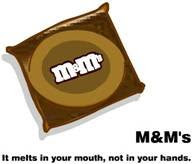Our society is now progressive and modern technology has allowed life to be much easier, laid-backable and comfortabler than ever before. Ever wondered how they made butter in the Middle Ages? A huge churn of milk has to be used and all you get is actually enough butter to spread on one side of bread. And churning is hard work. Now we can have pre-packed butter easily.
As above, my topic for today is materialism. Is it a good thing? Sure, it feels good to be more affluent than others and have more to show off.
But what does the conscience say?
Are we as content as we should be?
Nowadays, having a degree is everything. It lets us have a comfortable life with a comfortable wage and have a comfortable safety net as we retire. When we get a degree, we have more job options, such as lawyers, architects or teachers. That being said, you are bound to be paid a lot as you have made good contribution to the society.
Now let's take a look at who I feel also contribute to society worth mentioning.
1. Farmers and food cultivators What? you may say. But this is really true. Food is a necessity in life. Let's reflect. When was the last time you ever thought of that poor man or woman who has to toil for hours in the back-breaking work to ensure YOUR rice is there? When was the last time you thought of the fisherman risking his life in the sea to ensure YOUR constant supply of seafood when they themselves don't have the luxury of the time or money of having good seafood themselves? And the dairy farmer, who has to work EVERY DAY to make sure he has enough to eat himself.
Let's think about it. The food industry can never rest. Nor are there sick leaves or job raise or something like that. Only the rising inflation and cost of basic necessities face them.
2. CleanersThis may be a degrading job for people of "higher standards". however, let's reflect and appreciate them for a while. I mean, when was the last time you cleaned the vomit off the floor in a shopping centre/public place out of your own accord? Nope, we just wait for that foreign worker or the old uncle/aunty to clean that up.
In England, the wage of the cleaner is 7 pounds an hour. Would you do that?
----------------------------------------------------------------------------------------
My basic implication is here is that we are being dreadfully unfair to ourselves and fellow human beings. We think we are so important, so
deserving of what we have done, when others like who I mentioned above actually should deserve more (The list above is non-exhaustive btw). They don't have degrees, or money to have something like that. Yet their job is so essential, and yet they are treated unfairly.
Some (not all, though) who earn a lot can be undeserving of the money sometimes. We have people who constantly injure Mother Earth for their personal needs. I don't think my time is worth even talking about this people. But good for you if you are not, and have contributed to society (and not to Global Warming I hope...).
------------------------------------------------------------------------------------------
Next, I am discussing the matter on how selfish a lot of rich people can be. Take a certain country I shall refer to as Country A. It is well known for its financial power. But look in the country itself. People are denied of basic healthcare (try not getting an insurance), and the infant mortality is horrendouly high for a developed state.
The country mentioned has spent a lot of money sending people to space, providing aid (with strings attached, without a doubt) etc. Let's discuss on the aid part.
When DCs send aid, they expect returns from the helped country, such as agreeing to the country's plans, buying their products, etc. What are they trying to do, make the whole world worship the leaders? Why not have goodwill since they already have surplus money spending on projects like "wars against terror", sending people to space, having "nuclear talks" (which is weird as the country in question is the only country in the world who has used a nuclear weapon before, and it makes more noise on others)and what not?
-----------------------------------------------------------------------------------------
Let's look in our own society. Money seems to be everything now.
We just have to have that latest gadget, fashion and what have you. Let's take a moment to get rid of the materialism mentality and appreciate what we already have, and be thankful to all those who made living possible.
The most cursed of a man is one who clings to his belongings --Book of Philosophies



















































